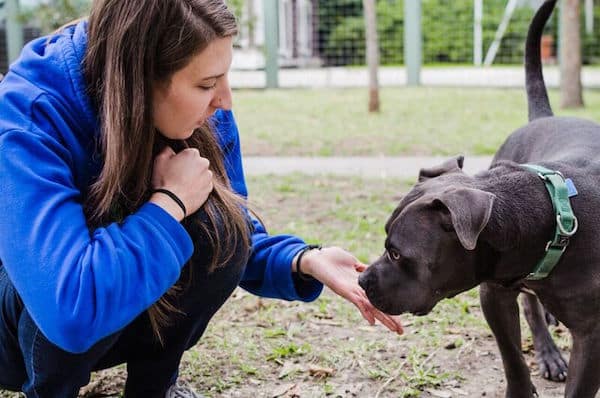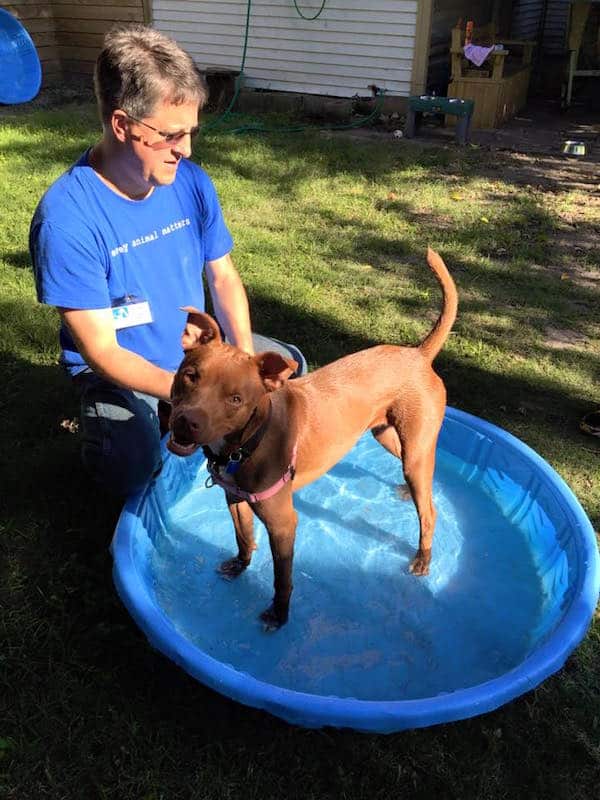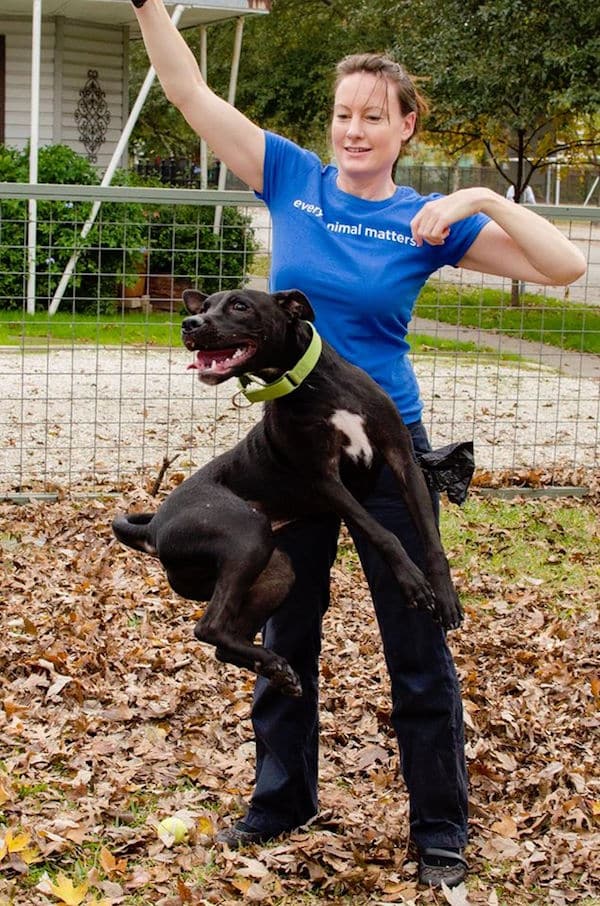With more and more dogs being surrendered due to “behavioral issues,” many shelters are looking for ways to address these behaviors and make the animals more adoptable. Some shelters have an entire training and behavior department, while others ask local trainers to volunteer their time. A few even have a program that allows volunteers to work with professional trainers, learning valuable skills while assisting them. If you are lucky enough to live near such a shelter, here are six reasons why you should take advantage of that opportunity.
1. You will learn to speak dog
It can be difficult to notice the subtleties of your own dog’s body language, but seeing how different dogs act and having a professional trainer there to translate is a wonderful learning experience — one you can use to better understand your dog.
At Friends For Life, an animal shelter in Houston, Texas, the organization has a trainer trainee program with five tiers. Each tier gives the trainee/behavior volunteer experience in a different area, and they must complete each level before moving to the next. Body language is in level two, and it “benefits their handling skills and reduces the stress levels in our shelter pets,” says Behavior and Training Manager Melissa Taylor.

Volunteer Crystal works with Friends for Life dog Maxwell. (Photo courtesy Friends for Life)
2. Your dog will help with homework
In a trainer trainee program, you learn the best ways to teach dogs basic (and possibly more advanced) skills, then you can go home and work with your own pup.
3. You will learn how to address problem behaviors
Many dogs end up in shelters because of problem behaviors, and as a more advanced trainee you will be learning how to address these issues. If your dog doesn’t walk nicely on the leash, or in more serious cases has leash reactivity, you will be able to bring home ways to solve that problem at home.
At Friends For Life, trainees are taught learning theory and dog training, and they even take shelter dogs to classes where they work toward their Canine Good Citizen title.

Volunteer Todd and Friends For Life dog Candace take a break from training. (Photo courtesy Friends for Life)
4. You will help dogs become more adoptable
Some dogs don’t do well in the shelter environment. Interaction and enrichment makes them happier and more attractive to potential adopters. People want to see a dog’s personality, and the more exercise (physical and mental) and training a dog gets, the more that personality is going to come out.
And this type of program doesn’t just improve adoptability, it also helps dogs stay in a home once there. Shelter trainers and/or behavior volunteers counsel fosters and potential adopters, and they work with families to ensure a smooth transition, and can help with any issues that might come up.
5. You get to do what you enjoy while volunteering
The more experience you gain and the more skill you show, the more you will get to do at the shelter. While some people are content with walking dogs, you might want to move up a level.
Taylor explains that “volunteers are not able to carry out playdates between dogs until they reach Level 2. Supervising playdates between dogs is so much fun … even I would do that all day long if I had the time!”
Some behavior volunteers also help with behavior evaluations and meetings between an adopter’s current dog and the potential new family member.

Volunteer Kelly and Friends For Life dog Maxwell get to work and play. (Photo courtesy Friends For Life)
6. You might find a new profession
Before I opened my dog training business, I completed a training internship with the behavior department at the Humane Society of Boulder Valley. I had a mentor and required reading, and I learned more than I thought possible. I loved the experience for all of the reasons mentioned above, and it only increased my love of dogs.
Taylor has seen the same thing happen at Friends For Life.
“I’m proud to say that most of the Level 5 Behavior Volunteers I’ve trained eventually open businesses in the field. At the shelter, they continue to hone their skills in solving difficult behavior problems in both our shelter animals and in privately owned pets. Many of them branch out into working with other species.”
The post Does Your Local Shelter Have a Dog Behavior Trainee Program? Here Are 6 Reasons to Join! appeared first on Dogster.
No comments:
Post a Comment